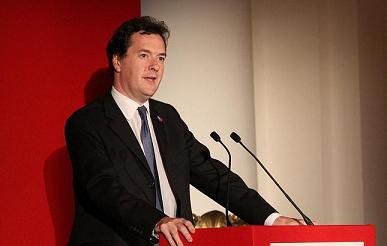UK insurance officials call on Osborne for £500m flood protection
Leading insurers have called on Chancellor George Osborne to invest in flood protection for homes and infrastructure after severe damage was caused across the UK last winter

The UK’s Chancellor of the Exchequer George Osborne has been written to by leading insurance companies calling for an additional £500 million of government funding to bolster flood defences in order to protect homes and infrastructure.
Large parts of the UK were challenged with severe flooding at the end of 2013 and beginning of 2014 and Prime Minister, David Cameron, has already vowed £150 million in flood defence funding.
Insurance officials such as Aviva’s chief executive officer Maurice Tulloch and others have requested an additional amount of £500 million.
They state that most of the endowment was spent on repairing the damages made by the floods in 2013 and 2014 rather than producing new flood defences.
They also claim that the government limited the spending on flood related causes by £147 million between 2010 and 2014.
Director General of the Association of British Insurers, Otto Thoresen, said “More must be done to address and prevent flooding in the first place. This means a consistent, adequate investment in flood defences and risk management.”
The Climate Change Committee (CCC) has cautioned that UK’s flood resilience is restricted by a lack of regulation and deficient budgeting.
As a result of climate change and socioeconomic development, research concluded that losses from severe flooding in Europe could rise over the next thirty six years.
According to the Government Climate Advisers (GCA), the risk of flooding has become increasingly inevitable, therefore in the next four years UK will have to spend a further cost of £500 million because of climate change.
The UK has been categorised as a country where flooding poses the greatest risk to economic output as between 2000 and 2012 flood losses in the EU were predicted to average €4.9 billion a year, equivalent to £3.88 billion.
However by 2050, this could increase to €23.5 billion (£18.6 bn).






